The Big House
Four days ago I read a post by @brisby and @calluna which introduced a poetry contest, Poetry Bounty - Jökull, under the banner of @bananafish. In the spirit of fellowship I wanted to participate, so I penned a short 'poem'. The subject of my piece was Ireland, and a recently imposed ban on peat harvesting. I posted this as a comment. The hope was that few besides @brisby and @calluna would ever read my humble verse.
Since posting that poem/comment, however, I've learned a bit about peat. This new information made me review my perspective. Peat harvesting is a more complicated issue than I at first appreciated. So, for the sake of balance, I'm sharing some of what I discovered.
PEAT
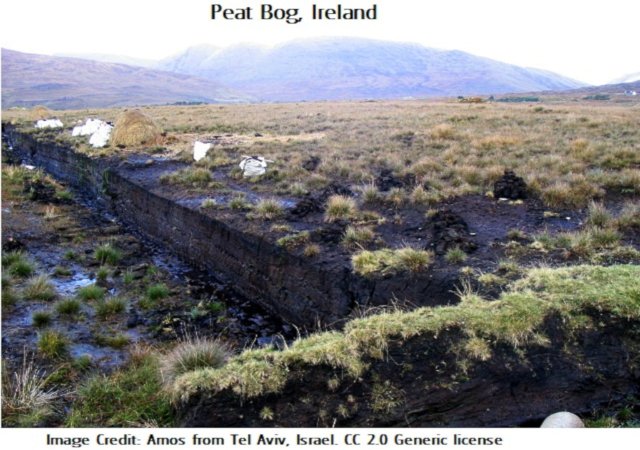
Peat bogs developed over a period of thousands of years. They are the result of slowly decaying organic material. According to the website irelandstory.com, there are two types of peat bog in Ireland: blanket bogs and raised bogs. The irelandstory website asserts that more bogs exist in Ireland than in any other European country, except Finland.
Pressure to curtail peat harvesting comes from the science community, and from environmentalists. This subject also concerns, obviously, commercial peat harvesters and individual consumers.
Science
Peat bogs are rich fossil troves. Secrets of the prehistoric past are locked in these reservoirs of time. A rather dramatic display of this was the recent discovery of a two-thousand-year-old block of butter. Apparently, Stone Age humans understood the preservative qualities of a peat bog. They used the bog as a sort of refrigerator.
This same preservative quality allowed animals and humans buried in the bog to remain virtually intact for centuries, so that these specimens might be examined by contemporary researchers. Such was the case with the so-called Tollund Man. More than two thousand years ago, this man suffered a violent death. And yet, he appears to us today very much as he appeared at the moment of his demise.
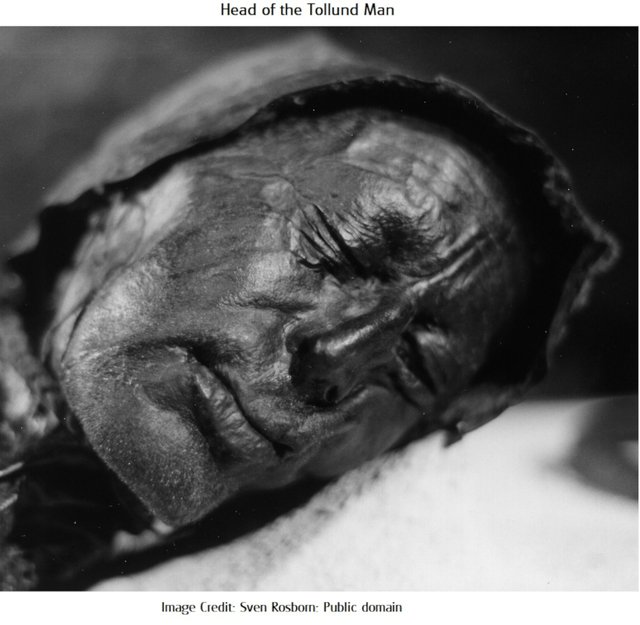
Environment
Peat bogs are excellent carbon sinks. That means, they absorb more CO2 than they emit. They share this quality with other well-known sinks, such as undisturbed rainforests. Rainforests that have been heavily logged and stripped, however, produce more CO2 than they absorb.
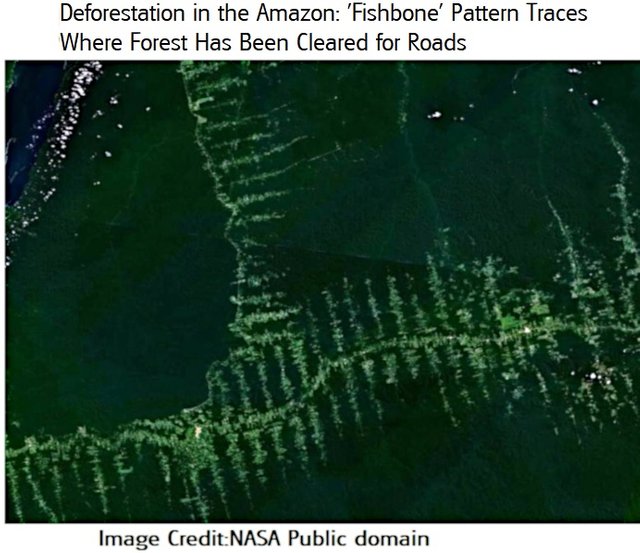
While many people consider peat to be a 'green fuel', unfortunately, it is not. According to Science Magazine, producing electricity by burning peat releases more CO2 than does the burning of coal. Plus, it seems that by merely clearing bogs of peat, the amount of CO2 released into the atmosphere increases, even before the peat is burned. That is because when oxygen is introduced into the peat debris (collected from the bog), decomposition is 'jump started' and this results in CO2 emissions.
Health
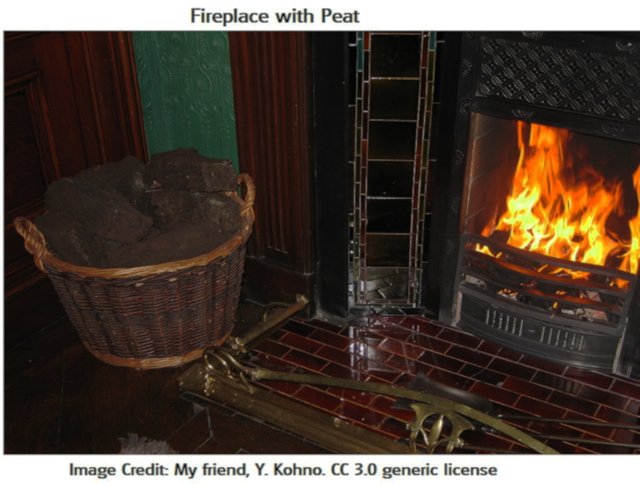
When it comes to burning peat indoors, the few sources I found seem to lump open fireplaces that burn wood, coal and peat all in the same risk category. One of these sources was WHO, and another was an organization called Global Nest. The latter source looked specifically at indoor pollution in Irish homes. It considered the combined contribution of open fire places with other polluters, such as smoking and gas heat.
Economic
Burning peat, also referred to as turf, is a traditional practice in rural Ireland. I remember my mother-in-law, who grew up in Ireland, describing the harvesting and burning of turf. It was considered, and is still considered by many, a natural right.
Recent rulings that limit peat harvesting have been vigorously resisted. It turns out, though, that much of the peat harvesting is done not by individuals, but by large commercial enterprises. The peat harvesting industry has been touted as a way to create badly needed jobs and to render Ireland energy independent. Nonetheless, the last large commercial peat harvester, Bord na Móna, announced in 2018 that it was suspending operations under pressure from environmentalists.

My Poem
When I wrote this brief poem, I didn't know anything about peat, except that it was used as a cheap and ready fuel by farmers. Many of these people still hold that they have a right to harvest what nature has provided them. But I see now that the issue of peat is complicated.
As for the Big House, and Potato Famine referenced in my poem: I stand firm on those two. Hundreds of thousands of Irish citizens died because resources were directed away from them. And the Big Houses, well... they are the legacy of a colonial policy that exploited the poor and created stark economic and class contrast. So I do not apologize for the sentiment of my poem, although it may lack some legitimacy on the issue of peat.
Without further ado, here's the poem I wrote for the poetry contest created by @brisby and @calluna. If I can offer a bit of verse, anyone can. Please, join in. Listen to the wonderful music prompt and let it move you. We all have a muse. We just have to open our hearts and listen.

An Example of a 'Big House'
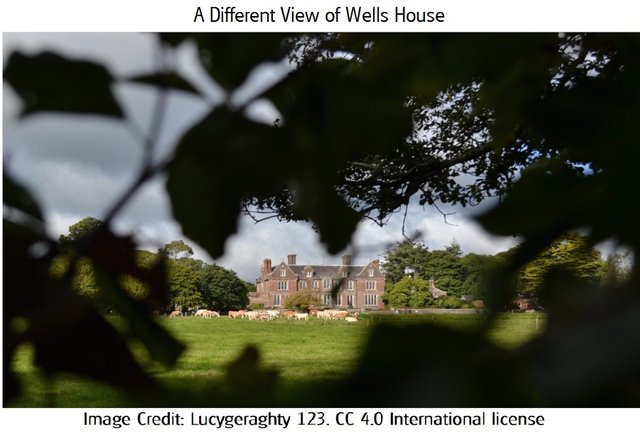
The Big House
Well, you know,
Those fellows in the Big House,
They say we can't
Cut peat.
I remember the time
When we couldn't
Keep our own potatoes,
They said.
Can't have heat.
Weren't allowed to eat.
How does the Big House expect us
To live?

Dedicated to my Irish mother-in-law, who used to cut peat for fuel in County Roscommon, Ireland
Your post is enlightening. As much a peat-primer as an essay on the responsibility of the poet to get the facts right!
I especially like the first line of the poem for some reason, and I wouldn't mind every single post of yours having one as a coda!
My dear friend, you are so kind. No, I'm no poet. Although in my heart poetry does exist. Fortunately, I know my limits.
Getting the facts right is something you and I are careful about. We are notoriously thorough researchers and write equally notoriously long blogs that reflect our assiduous care.
Thanks for stopping by. I keep checking your blog to see if there is another post:)
We have a very large peat bog near where I live. Burn's Bog. Apparently it can be seen from space. It is hard to blame the average person for heating their homes but then burning peat is not the way to go. I know that old coffee grounds can be compressed together and be burnt for warmth. Maybe starbucks should get the business of heating.
Your poem was wonderful:)
It is hard to blame the average person. Especially when people with great means are tooling around the earth in private aircraft, or maintaining large, CO2 spewing properties, it seems a little disproportionate to hold the individual peat harvester to account.
Coffee grounds...that I didn't know. Maybe another article :)
Thanks so much for stopping by and commenting. As for the 'poem'. I once had a mentor who claimed everyone is a poet. I believe he was right (ha ha)...it's just that some of us write more skillfully crafted poetry than others.
I do think everyone is a poet and yes. blaming the average person for the climate crisis is ridiculous. The changes have to be made in infrastructure to make any radical difference.
I grew up in a peat area. My whole settlement is surrounded by a moor. I was always told that the soil was leached out, that nothing would grow there at all and that the whole thing was only good for heating and enriching potting soil with it. Still a lot of peat is being mined there and the fields look a bit spooky because they are so dark. The geometric shapes that emerge during the mining process have their own beauty. I was vaguely aware that peat cutting is not particularly good for the environment. But then I asked myself what advantages it could have if you didn't burn it or expose it. Much of what we get from the depths of the earth is irretrievably lost and fertile topsoil, just like water, will become a treasure, it seems.
Your poem is a criticism of those who have everything and grant nothing to those who have nothing. But it also reminds me of my own abundance, in which I live my life so richly and fullly.
My dear Erika, So happy to see your comment here. Fascinating, how many people (on Steemit) live near peat bogs and how these bogs have been incorporated into daily life. I guess it seems exotic to me because I grew up between a mountain and a river-- surrounded by trees, vineyards and apple orchards.
One of the best parts about blogging is that I learn. Many threads grow from one idea. And then networking produces more threads. You know I find these irresistible--I'd love to see a picture of 'your' peat bog.
My mother-in-law used to tell me how she walked past a Big House on her way to school in Ireland. Her family was so poor. Perhaps it was her voice that came through.
I hope the summer is treating you well. It's very hot here, finally. I retreat into shaded air conditioning.
Love from hot, sticky New Yor
Yes, I make the same experiences. One thing leads to another. Sometimes I must collect myself not to lose all the threads I picked up.
I must look for a picture. I just have taken some when we visited the castle on Easter. The way to this place leads directly through the moor.
Growing up between mountain and river is much better, but thankfully on the other side of that area we have a lake and some little little mountains, too. :)
The heat today is almost unbearable.
You're right... it was a beautiful place to grow up. Gets under skin and never leaves.
finally found it! this I took just recently driving home after a day trip at Easter.
Wow! Cool. I've never seen a peat bog in person.
The intro to the poem makes it so much more powerful! I've heard that this is actually a fairly serious issue. It seems lots of homes that can't afford or don't have access to traditional heating methods often burn things like peat and it can lead to serious health issues :s I didn't know that some people actually chose to burn it though...
Thank you! That comment makes my night. Someone else who is interested in history :) I got really carried away with peat...started looking at peat houses and peat in Alaska. But I tamed the urge to go overboard. As you can see, I am not a poet, but I do love ideas and love to write about them.
There is something about this poem, that feels like a question about acceptance, “Will we take this, will we accept this next affront to our rights? Or will we rise up?” That feels fitting with the way the music has both a soft and a more metal half that very much feels like it could be the same challenge.
This feels like a poem with a few layers, at first, it could be about cutting peat, but as you discovered in your wider research, it isn’t a common practise that people harvest peat for personal use any more, and from what I gather it isn’t something that people have done so much for their own personal use a long time, and it really has a wider feel of a call to stand up to historic oppression. This is a very relevant poem, especially given the current situation Ireland is facing at the moment. The greater meaning here is something very close to my own heart - regardless of country. (Although my mum is Irish and very much raised me with rebel blood lol)
I very much enjoy this poem, there is a surprising lightness to it that feels conversational, the rhythm and structure, the weighting in each line. It gives it an almost colloquial feeling, (i read it with an accent) that makes the issue it covers accessible, and relatable. It makes it hard not to read it, and despite the wider environmental implications of the particular issue it covers, its hard not to understand the position of the speakers in the poem, which is a gift - the ability to put someone in another's shoes.
This is a very well put together poem, and the flow makes it memorable, and it all just helps the message of those who have forcing those who do not, to make life changes for “the greater good” without understanding what those life changes mean to those people. It being short just adds so much to that. I would actually love to see you share this even more, on the even wider web!
A poem as rousing as the music that inspired it!
#sbi-skip
Thank you, @calluna. I could hear my mother-in-law as I wrote. She had in her a sense of generation injustice that the Irish suffered. Her life on the farm was hard. So many children, and little resources. Every day, walking passed the Big House, I think it burned in her heart.
I see you also have had witness to this legacy in those you love. You read the poem, such as it is, so well.
Thank you for your commentary and for continuing to run forums here in which I feel the liberty to write and express myself creatively.
This post has been voted on by the SteemSTEM curation team and voting trail. It is elligible for support from @curie.
If you appreciate the work we are doing, then consider supporting our witness stem.witness. Additional witness support to the curie witness would be appreciated as well.
For additional information please join us on the SteemSTEM discord and to get to know the rest of the community!
Please consider setting @steemstem as a beneficiary to your post to get a stronger support.
Please consider using the steemstem.io app to get a stronger support.
Thank you SteemSTEM. This was a poetry blog that morphed into a history/science blog. So nice of you to stop by and endorse it. I love this community :)
You've me picturing a gathering of friends and neighbors during a sunset following a hard day's labor to hear about the ban on cutting peat. Like that final straw added atop the camel's back, enough is enough. Having been made to go hungry and give away their potatoes, now it's their fuel. It's your poem's last lines that are sticking with me. With more being taken away, how are they supposed to survive, let alone thrive? What else will the Big House demand next? A great poem on its own, your lead in with the history elevates your piece into another level steeped in meaning.
Years ago I went down a research rabbit hole to learn about 'bog men' thanks to a cheesy sci-fi television show. It was through this that I learned about the preservative qualities of bogs and first read of the Tollund Man and Yde Girl. To find out that there are environmental ramifications of using peat as fuel was surprising and nothing that I'd ever considered before, thank you.
I'm still beyond thrilled that you chose to write a post instead of leaving your poem as a comment. Each time you share your creations, you're thoughtful and include your inspirations, thinking processes, and reliable information you've learned. That is something so true to you and one of the many things I've come to appreciate about your writing style and your character. While enjoying yourself in the challenge of writing a poem, you managed to create something with heart, history, and social relevancy. Supremely excellent, sweet Agmoore!
Hello Brisby, I'm grateful to you for helping to make this platform an enjoyable, friendly place. I have so much fun, getting to just be myself and 'meet' other people. Steemit is a big universe. Such variety, so many opportunities, and then there's you :) Really, I don't see the dark spots. I see the bright lights. Your poetry 'contest'--to me it wasn't a contest, it was an invitation to participate.
The poem was from the heart. It didn't just speak for the Irish who can't cut peat, or who couldn't eat potatoes. It speaks for everyone, all of us, who are asked to defer to a symbolic Big House. I'm so glad it struck a note with many here.
I spot you from time to time welcoming newcomers. I have to hunt for you, but I do find you. See you around here on bananafish. I'll try not to miss whatever it is that you are sponsoring. Sometimes, though, I get distracted.
Be well and happy
Your friend, AG
That was an interesting read. The province flag where peat was harvested in the Netherlands has a tiny castle:
But that province does not have any castles! So it is a reference to the fact that the peat province was controlled by another province which does have castles.
I think I've gone down a peat rabbit hole. Since reading your comment I looked up peat in the Netherlands. Didn't realize how large a role peat played in the Netherlands history, largely because there weren't a lot of trees. Here are two interesting articles I found:
http://www.peatsociety.org/sites/default/files/Zeeuw.pdf
http://varletfamily.pbworks.com/w/page/8500473/The%20Peat%20Industry
Welcome to my rabbit hole :)
My great grand parents were peat harvesters so welcome to my great grand parents life :P
That is fascinating. I can't believe how rich the subject of peat is. Every time I open a door, I discover something new.
I'm looking into turf houses now. Amazingly, fits right into a blog I've been working on for more than a week. No, not a peat blog. Unrelated. Or at least I thought it was :)
@agmoore You have received a 100% upvote from @intro.bot because this post did not use any bidbots and you have not used bidbots in the last 30 days!
Upvoting this comment will help keep this service running.
Congratulations @agmoore! You have completed the following achievement on the Steem blockchain and have been rewarded with new badge(s) :
You can view your badges on your Steem Board and compare to others on the Steem Ranking
If you no longer want to receive notifications, reply to this comment with the word
STOPVote for @Steemitboard as a witness to get one more award and increased upvotes!